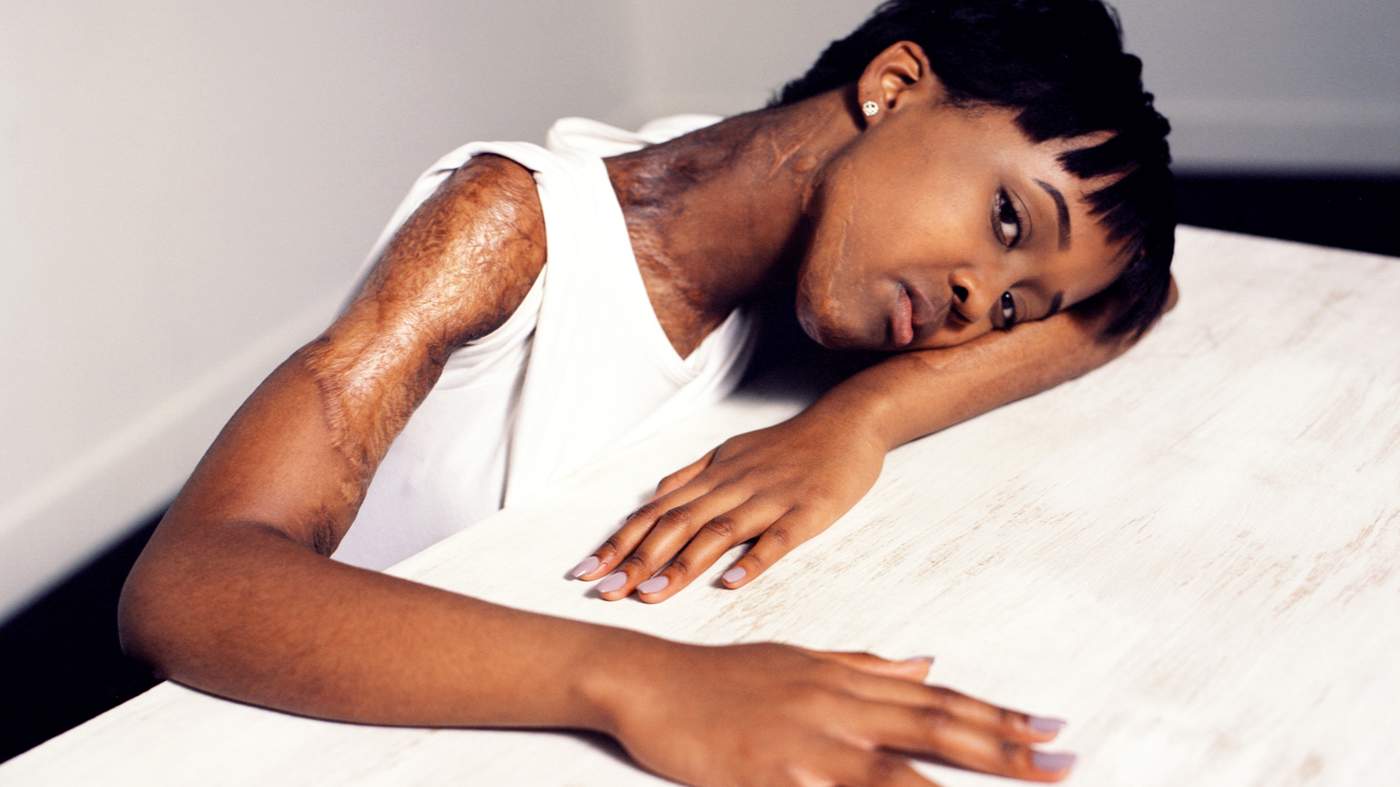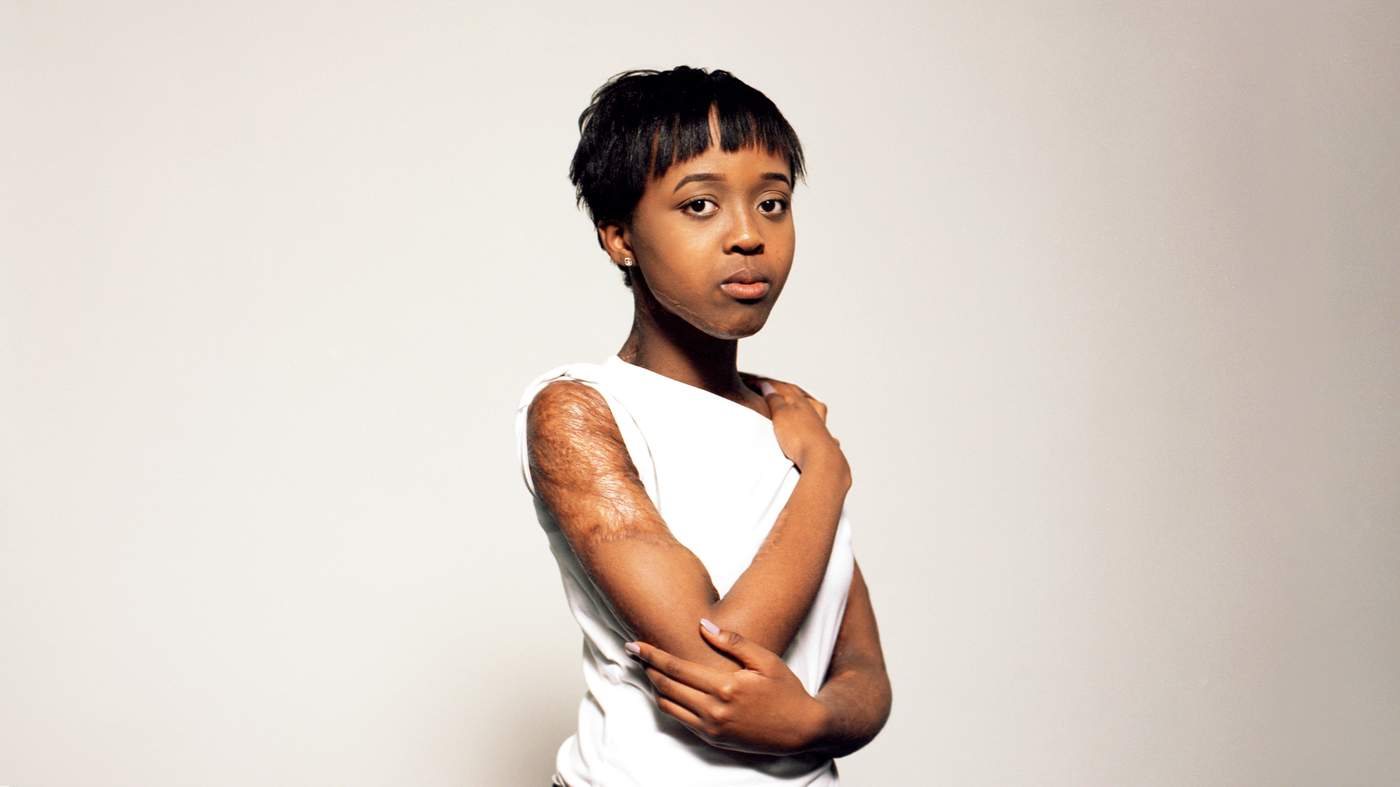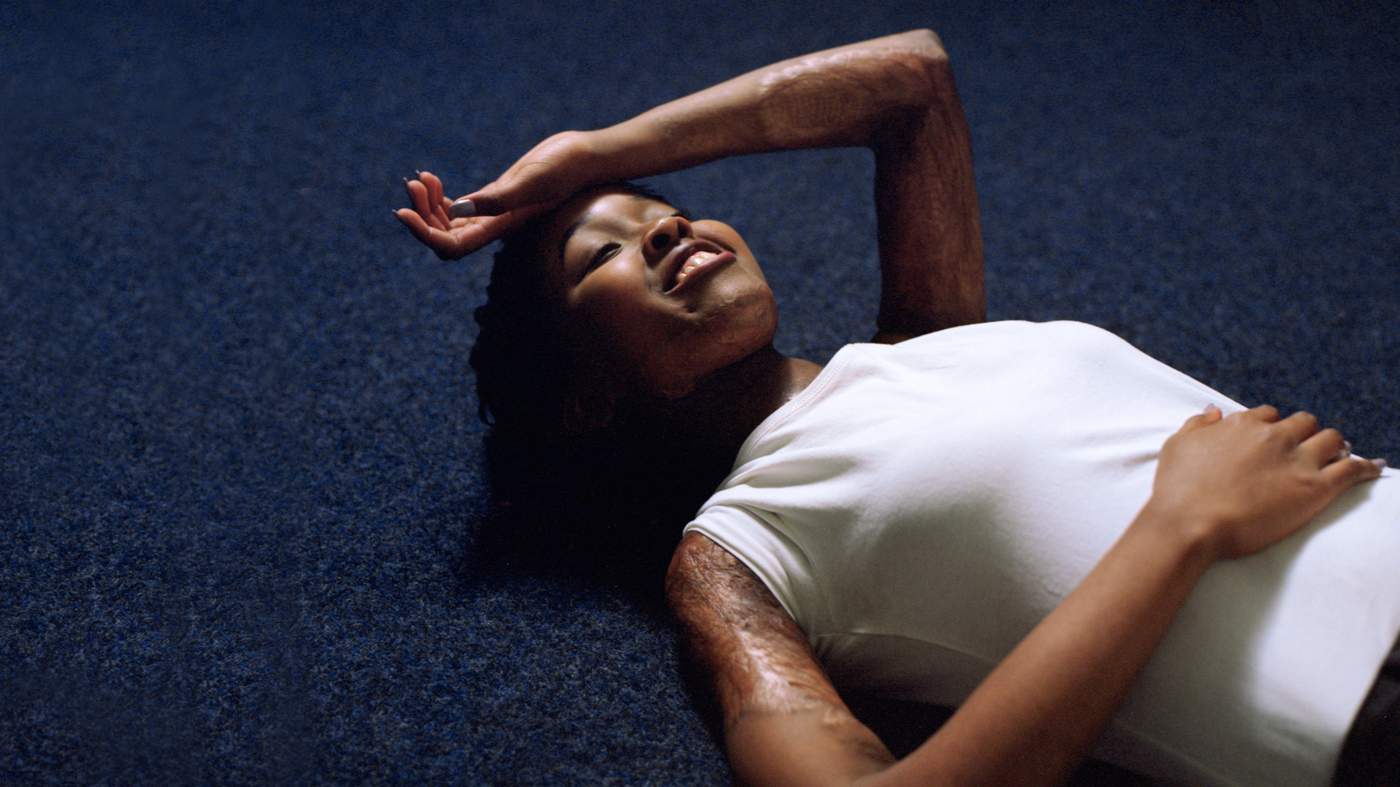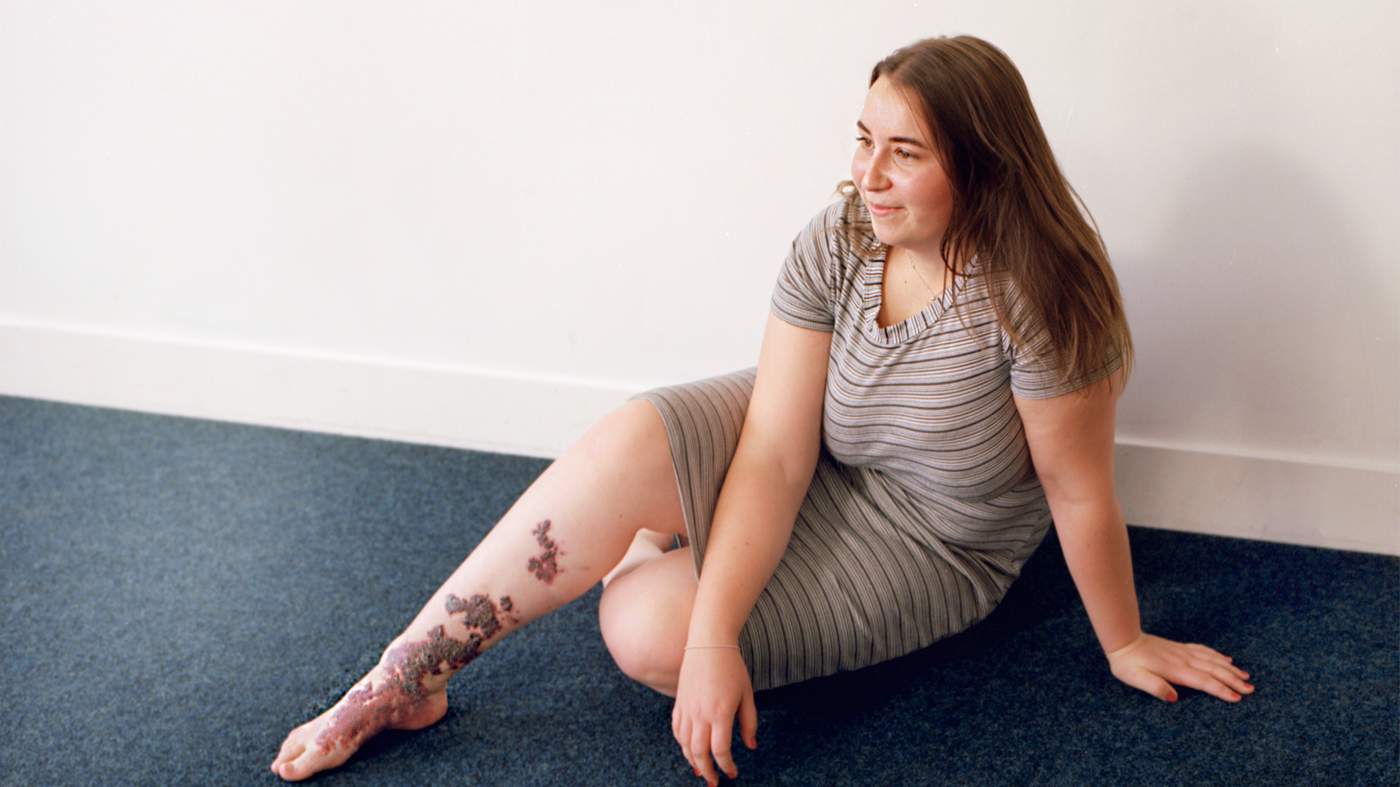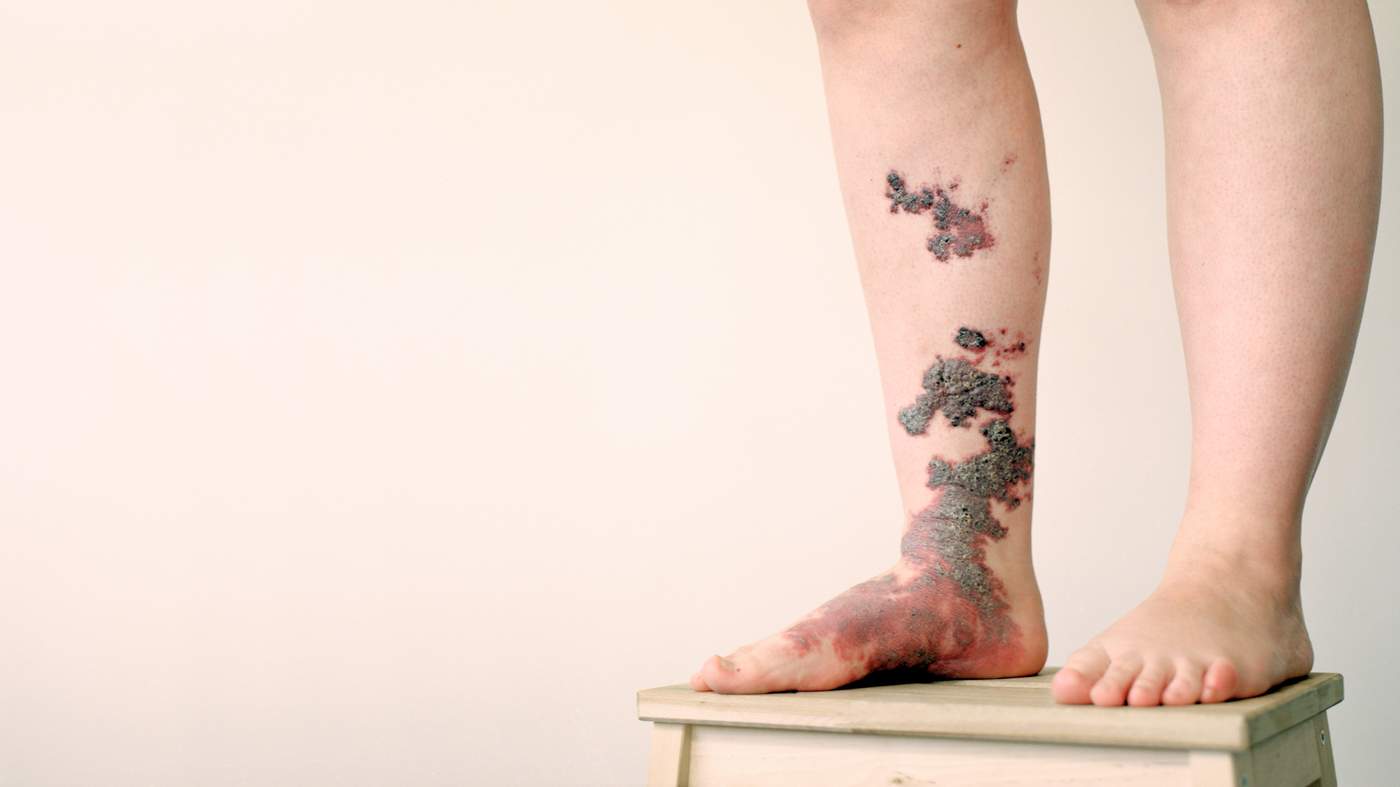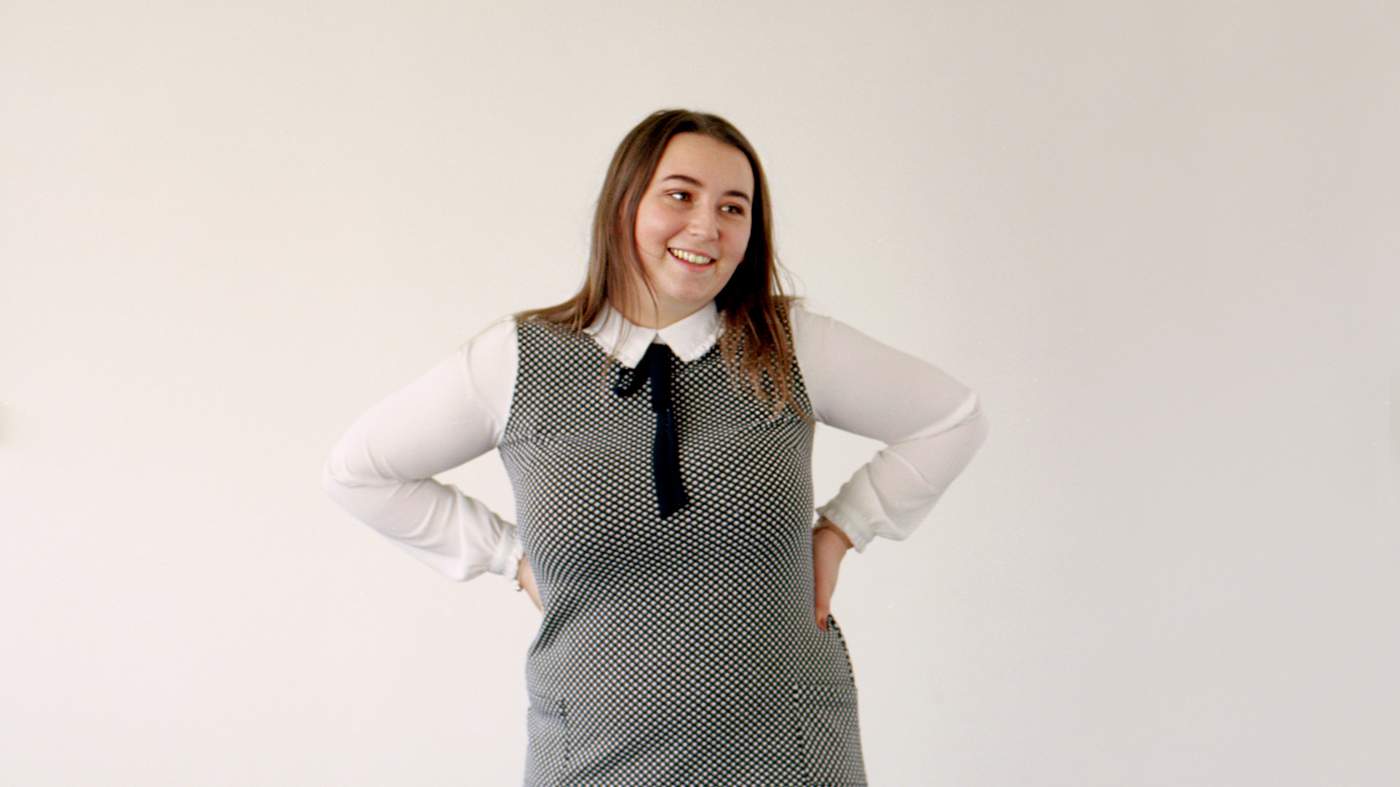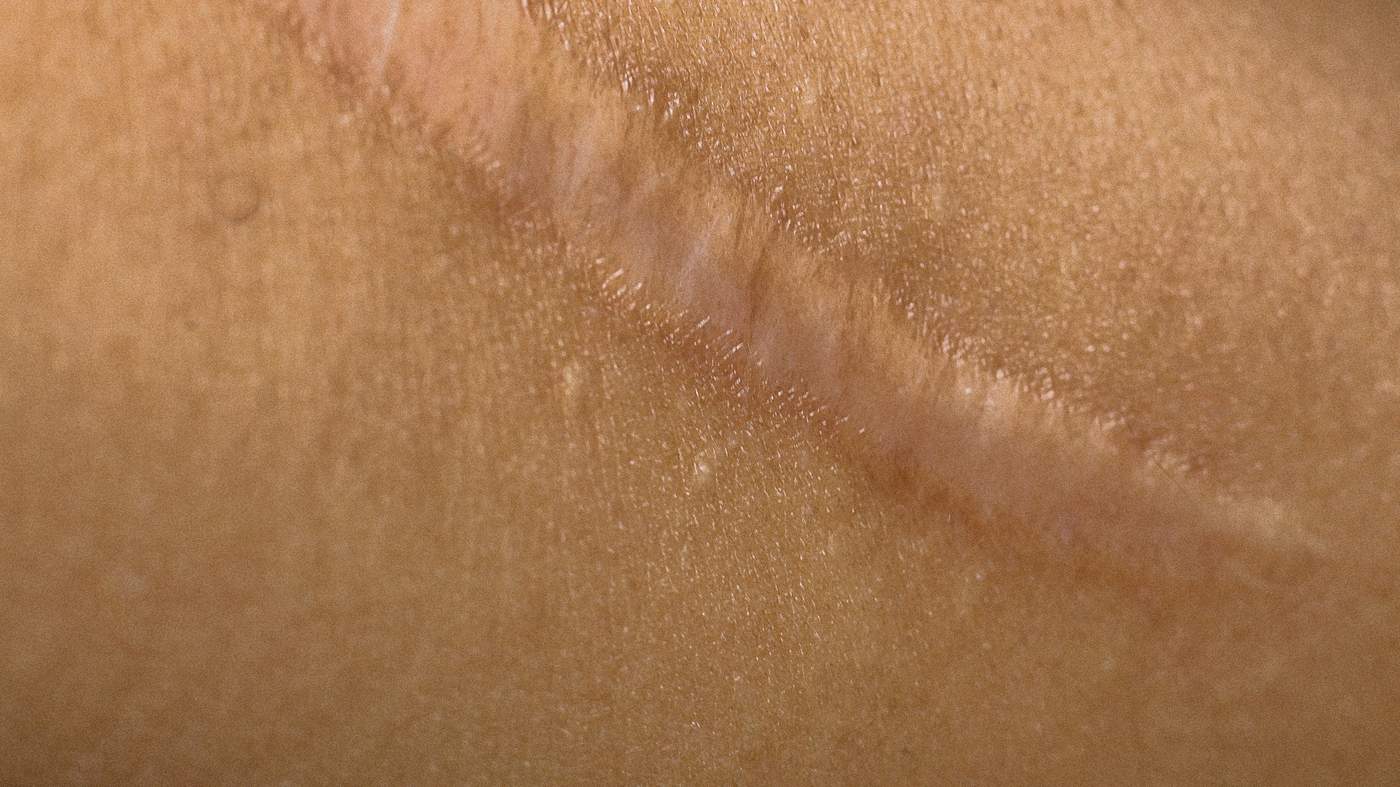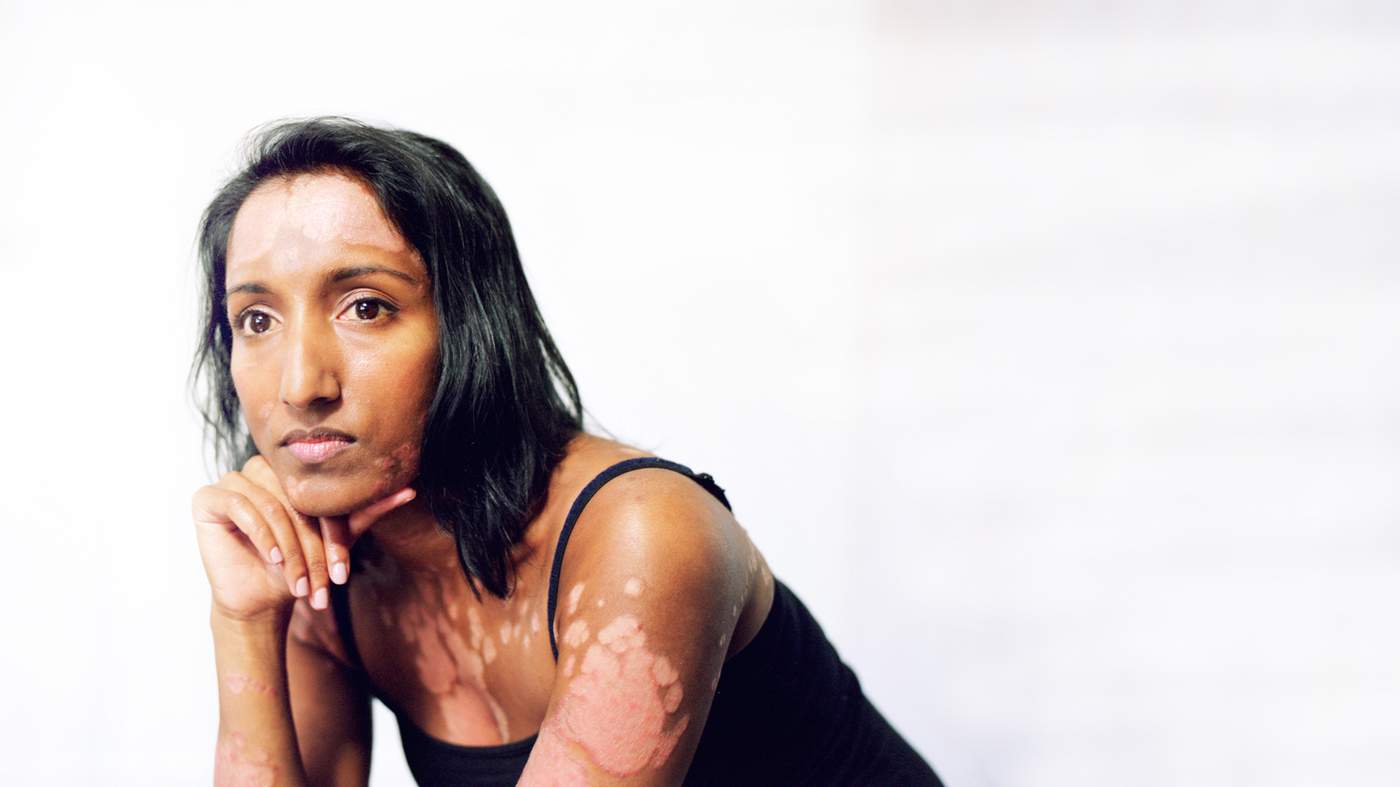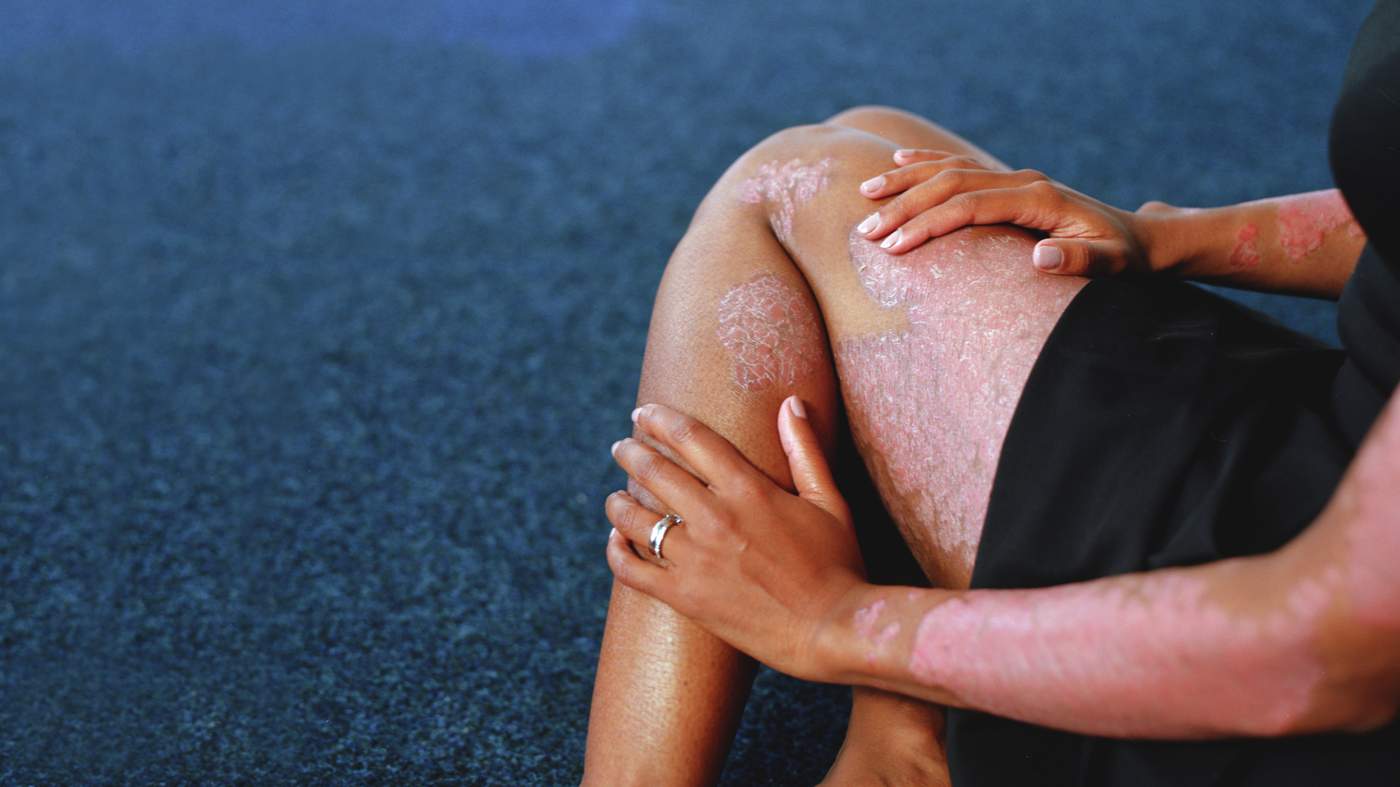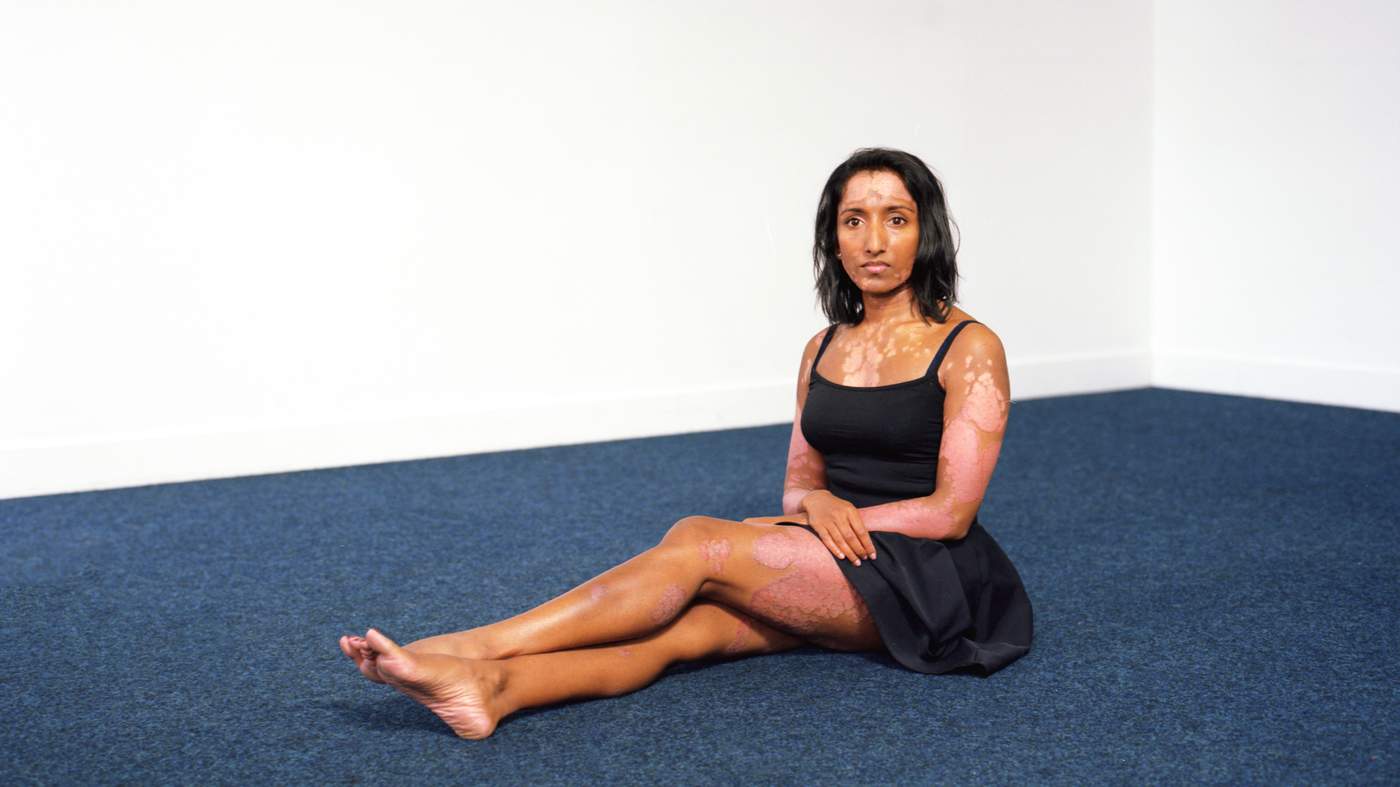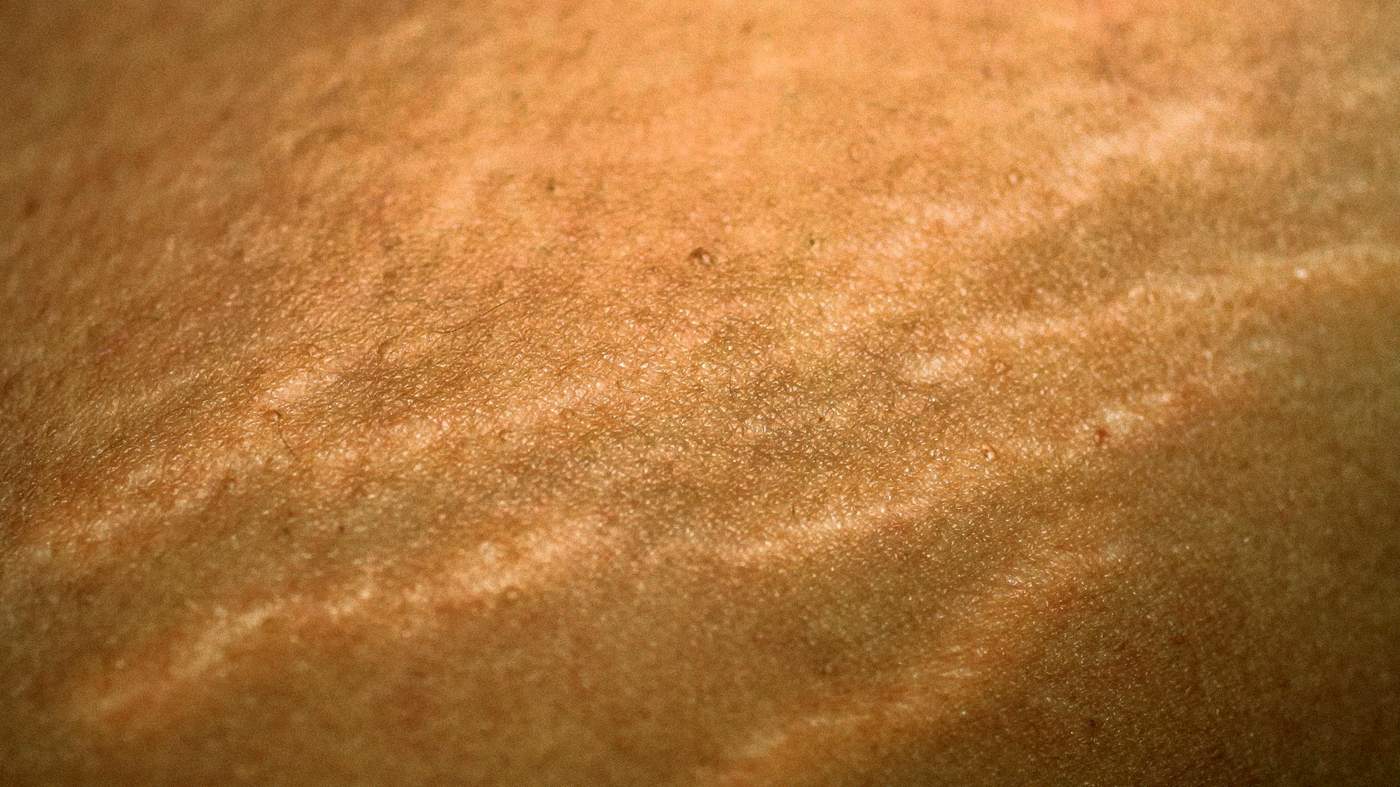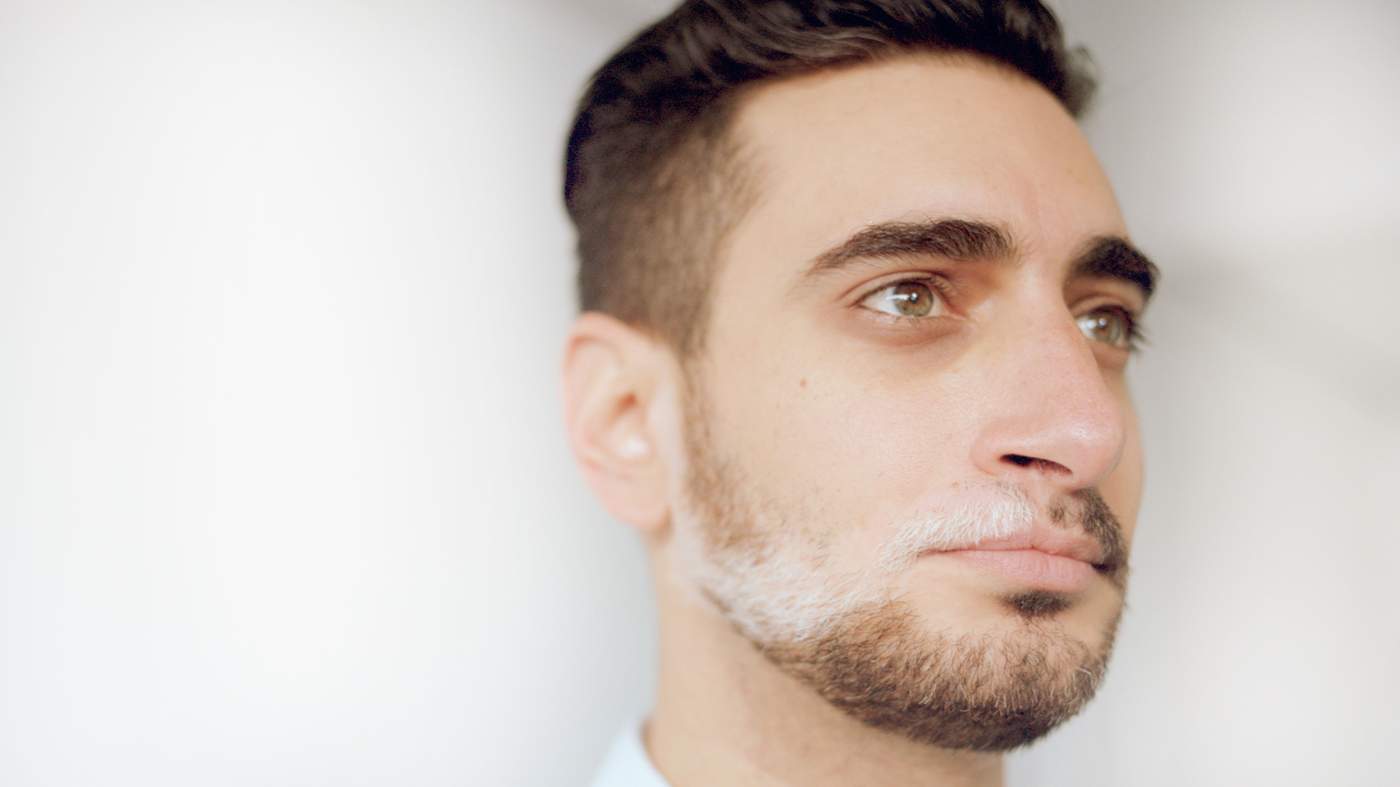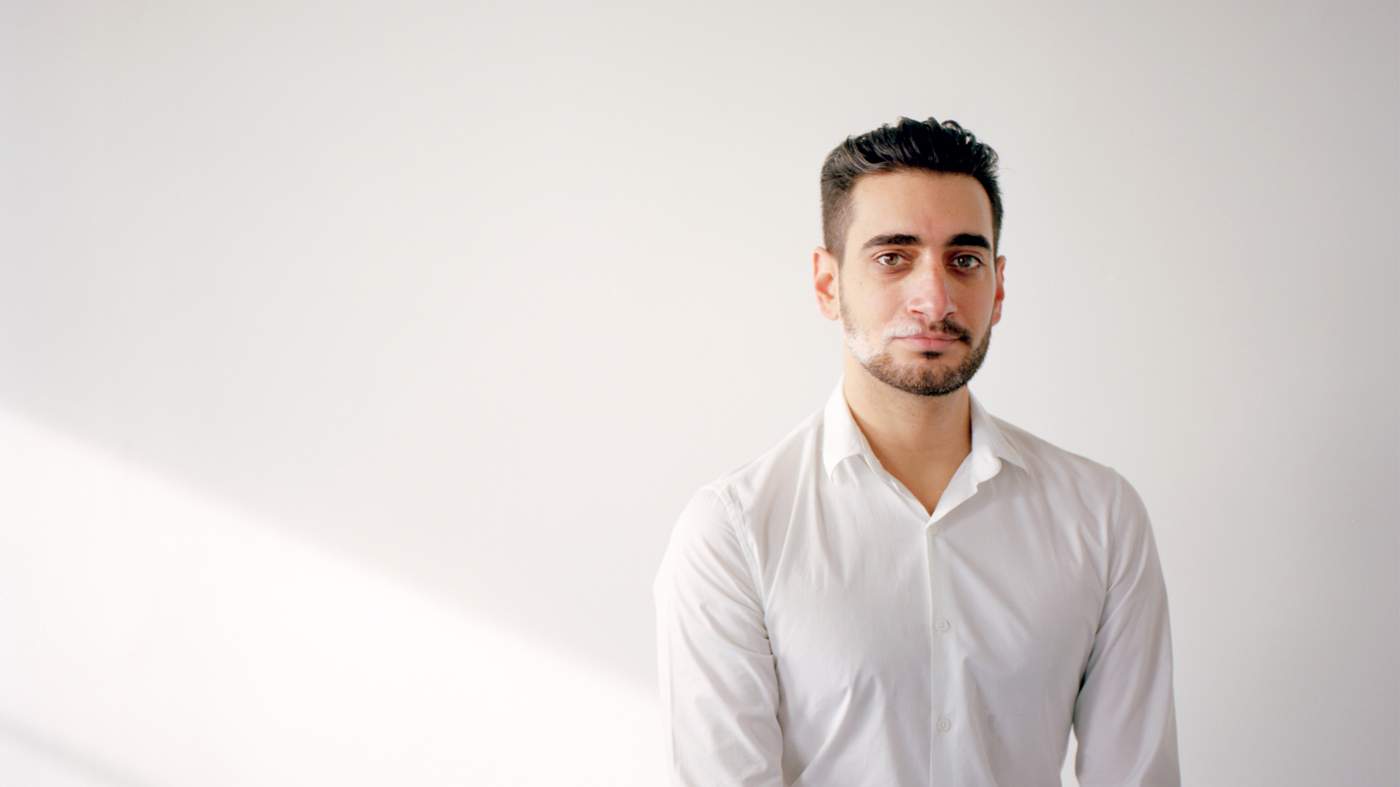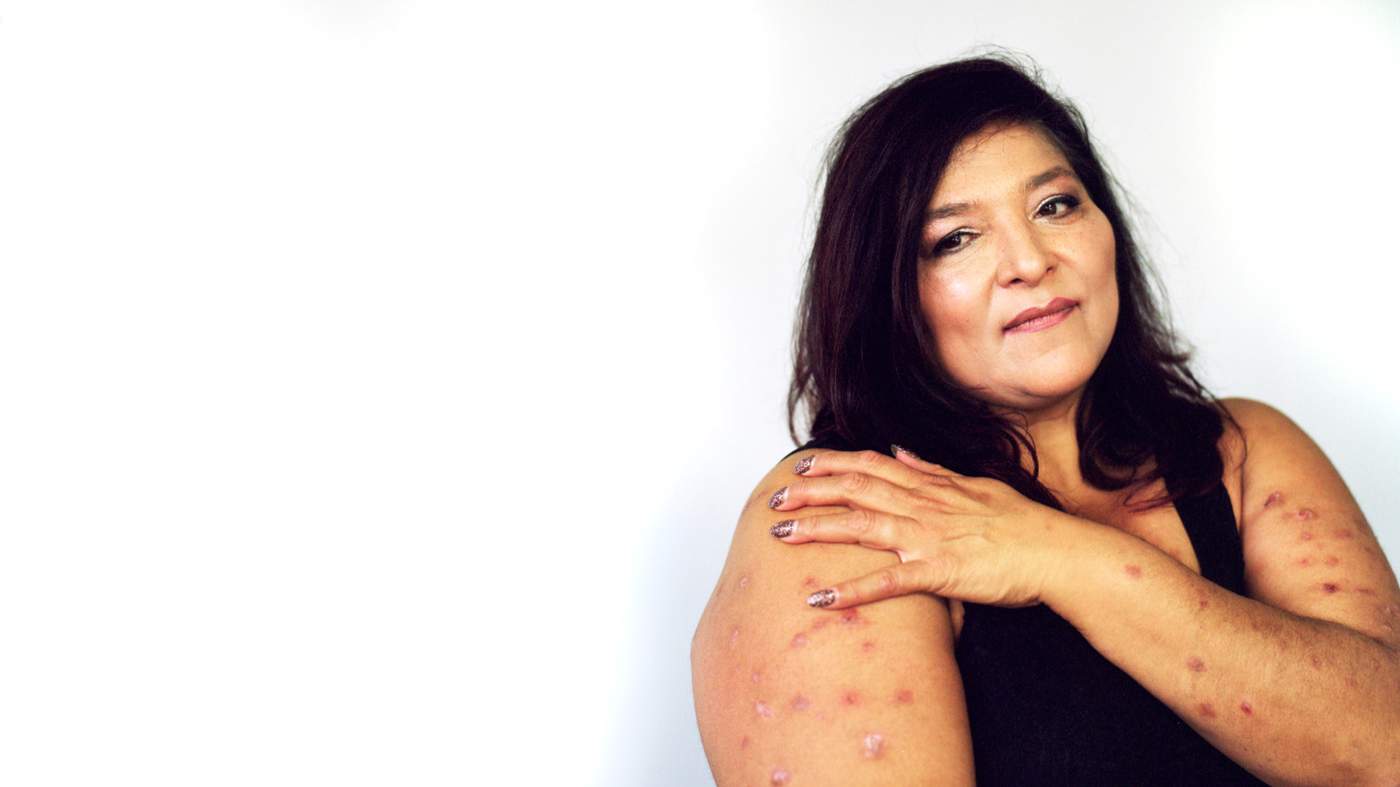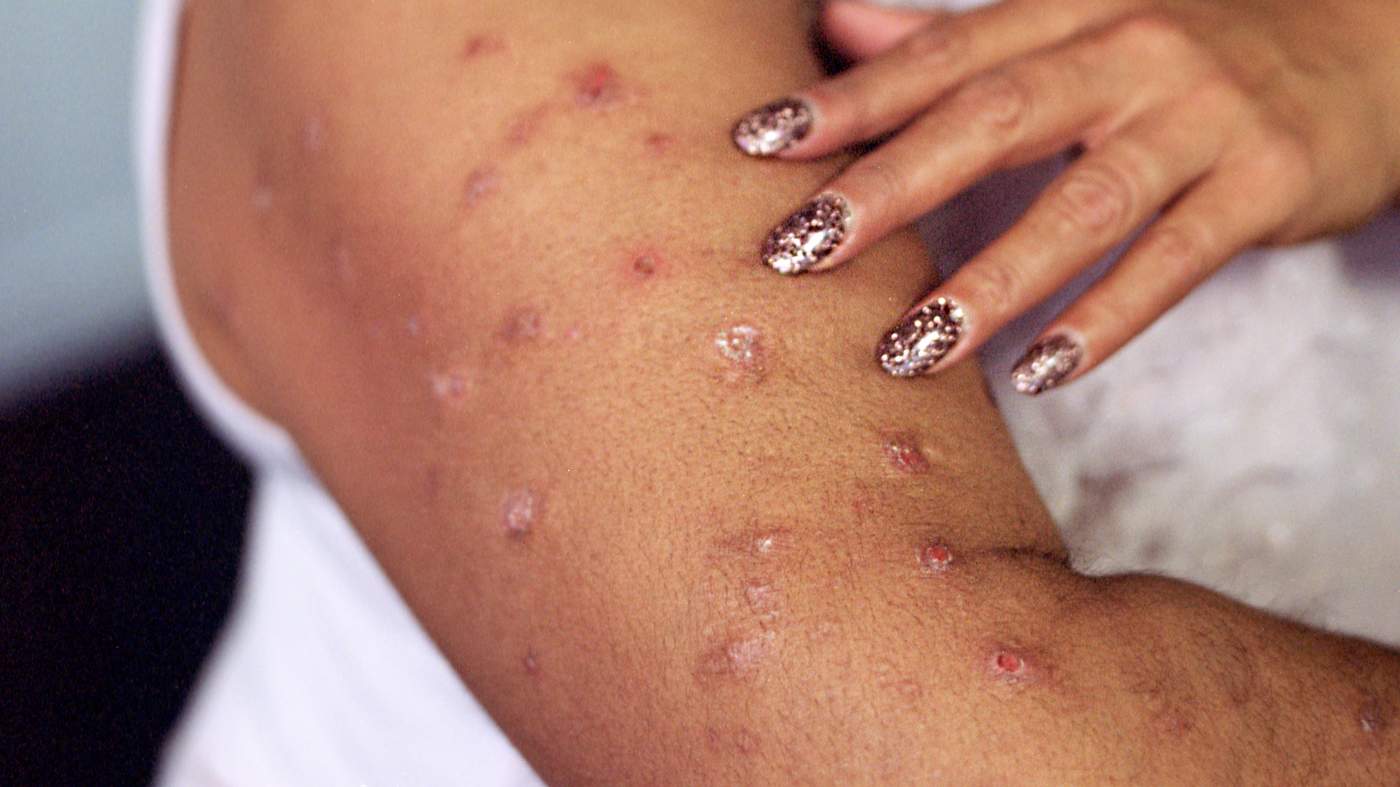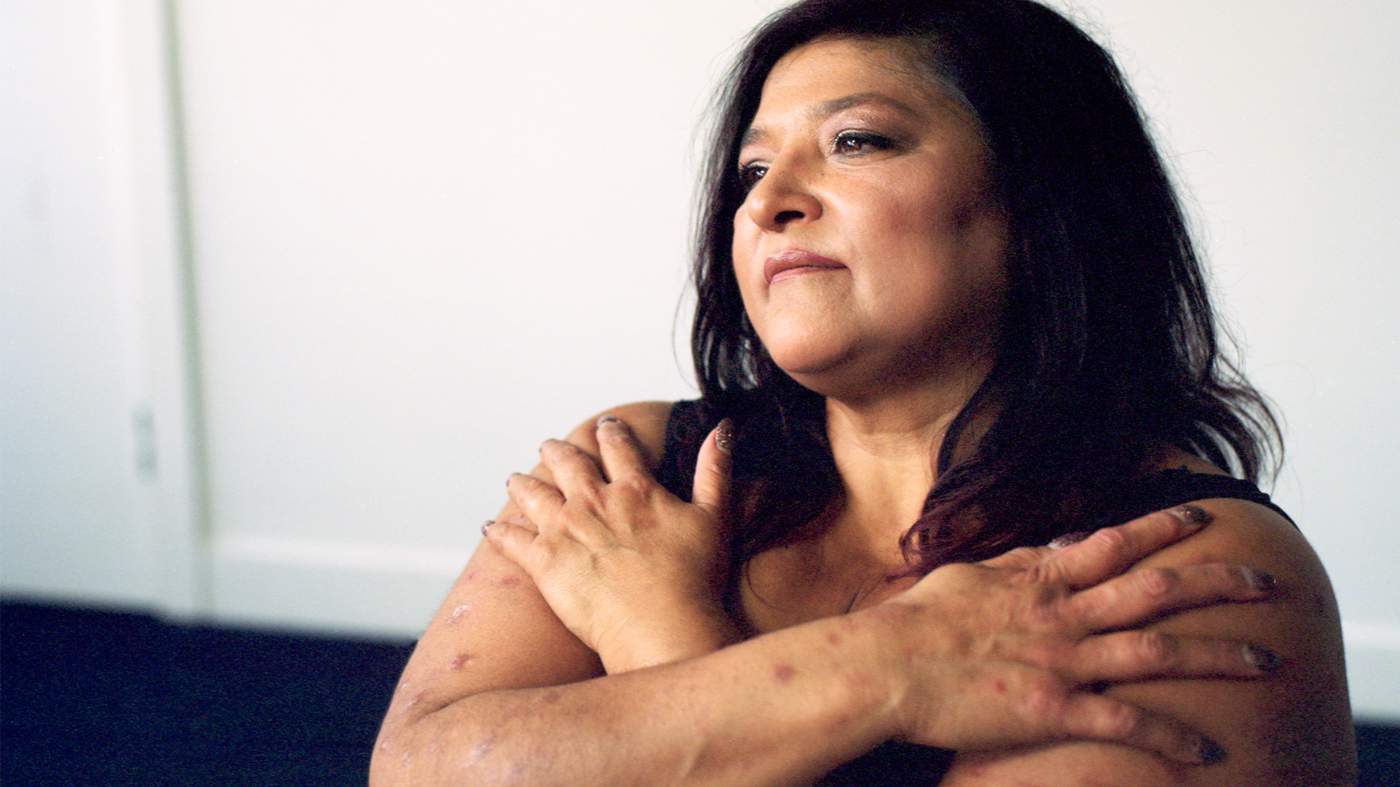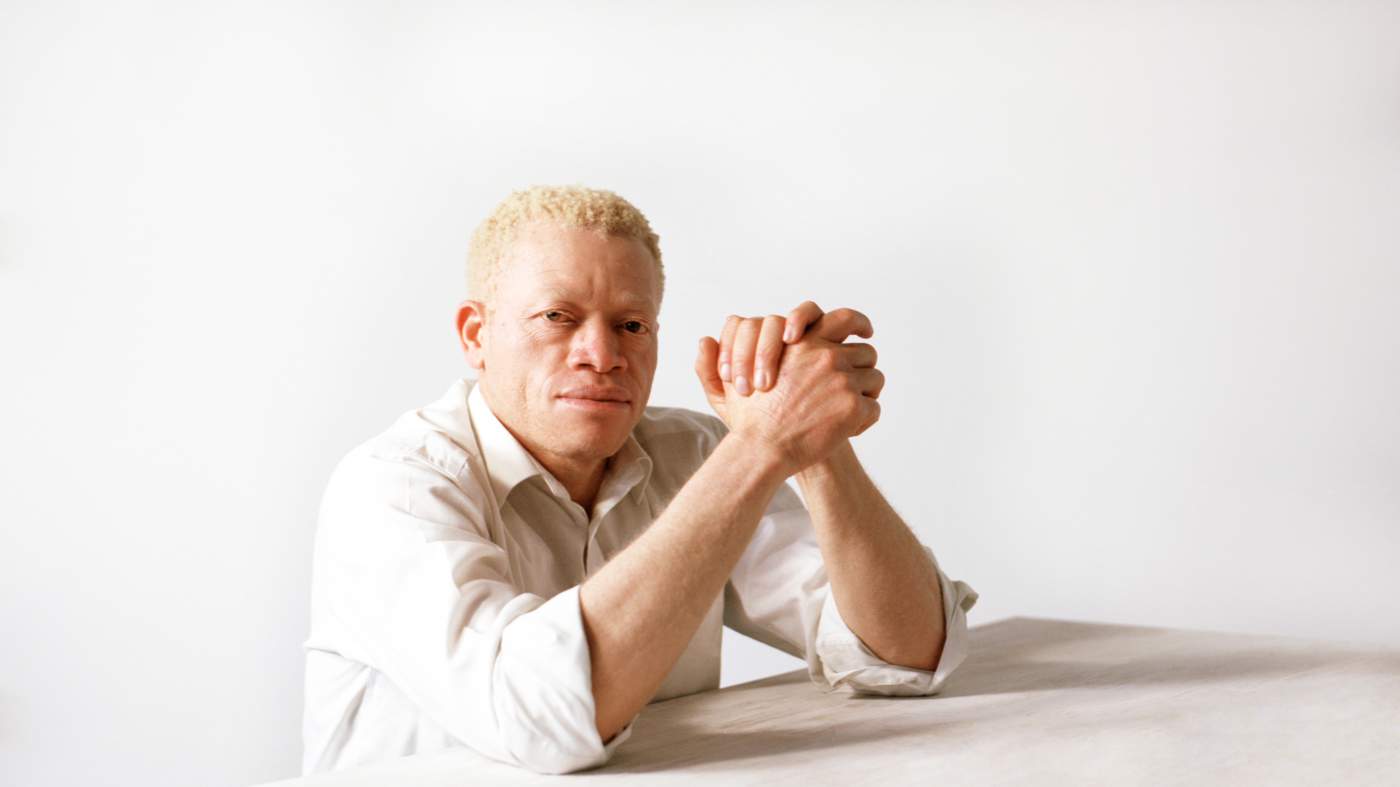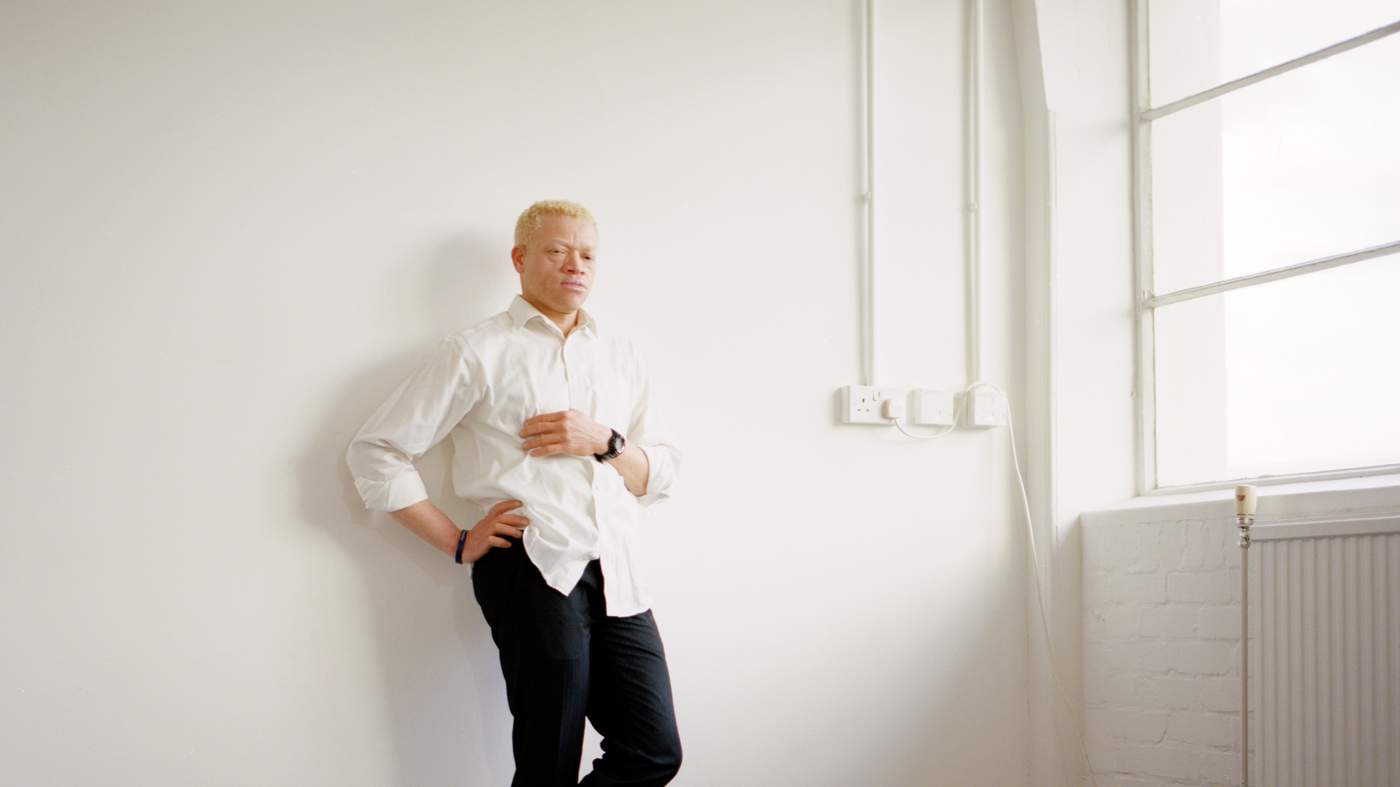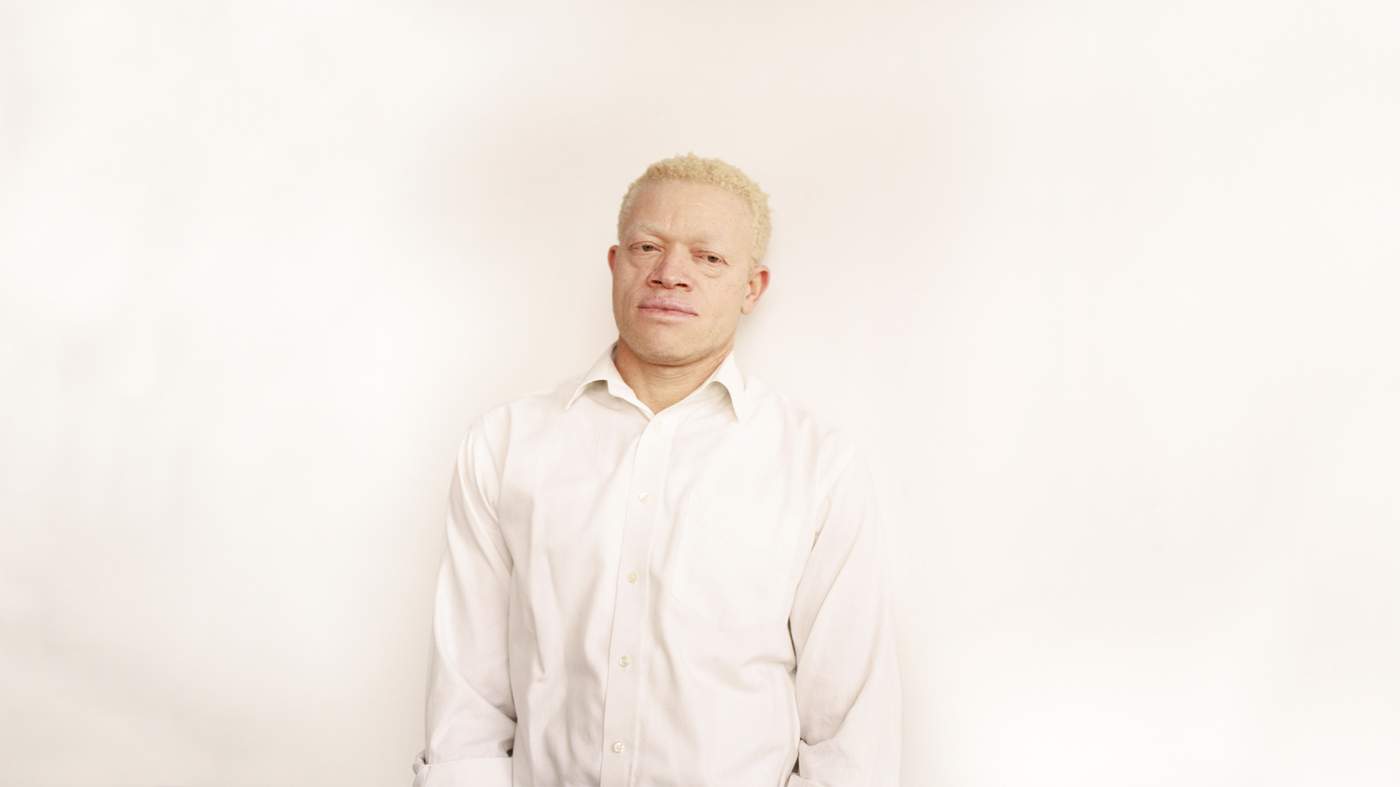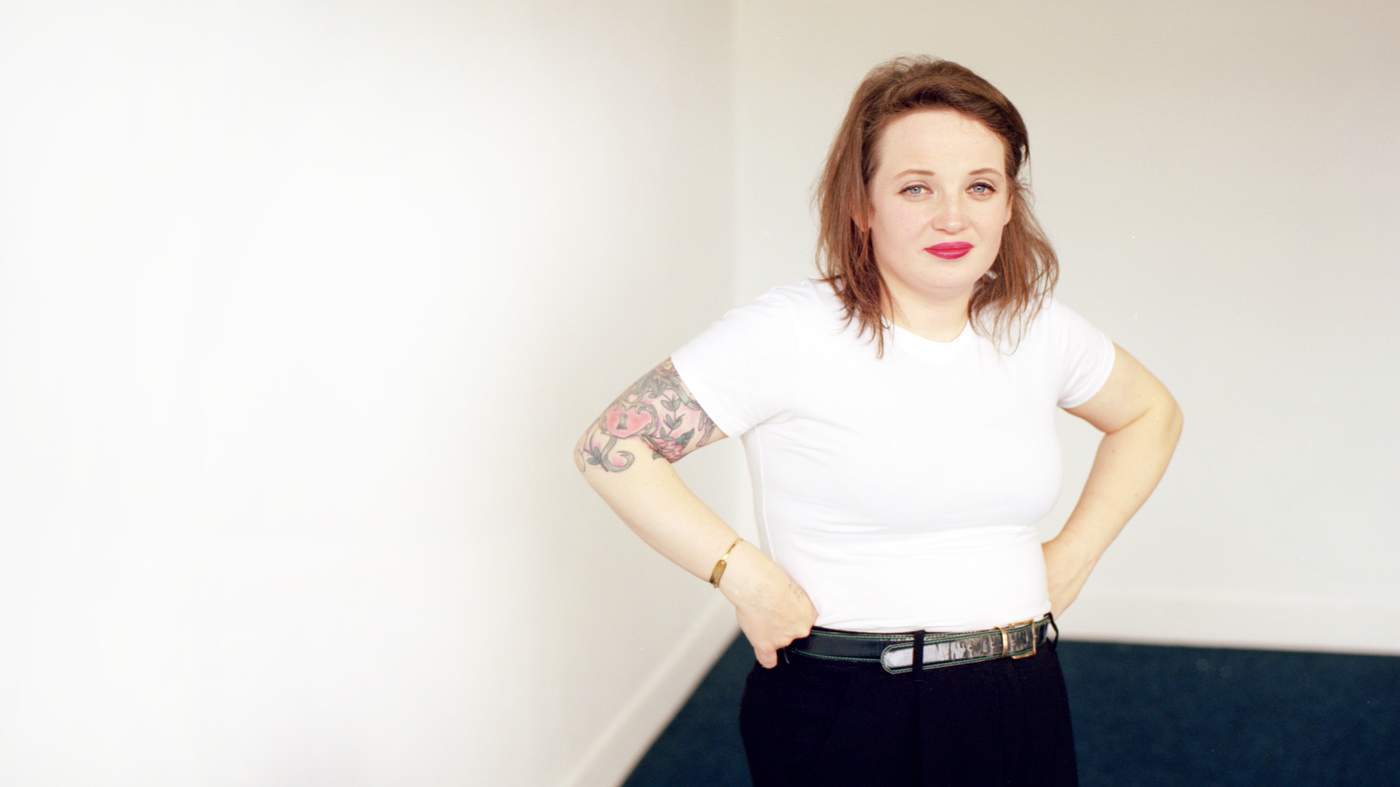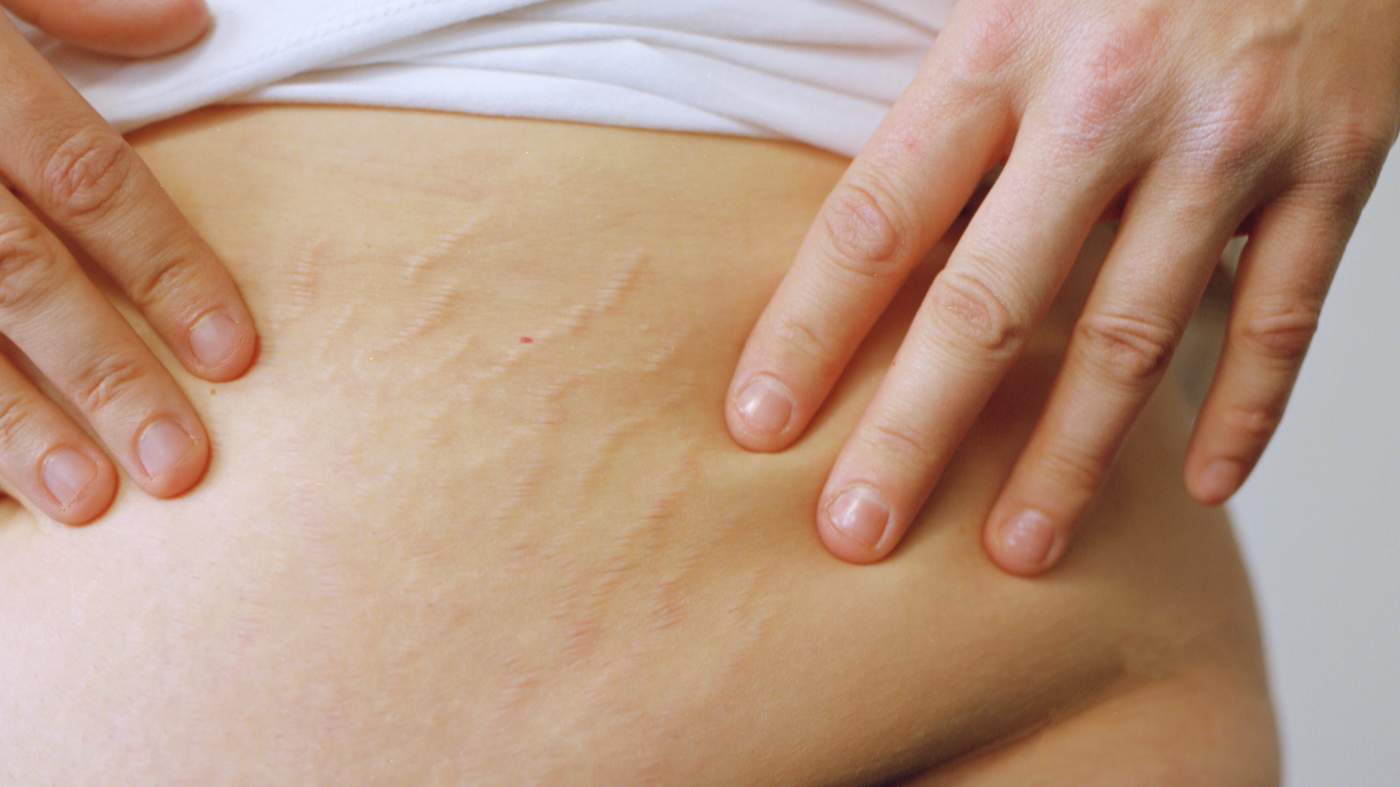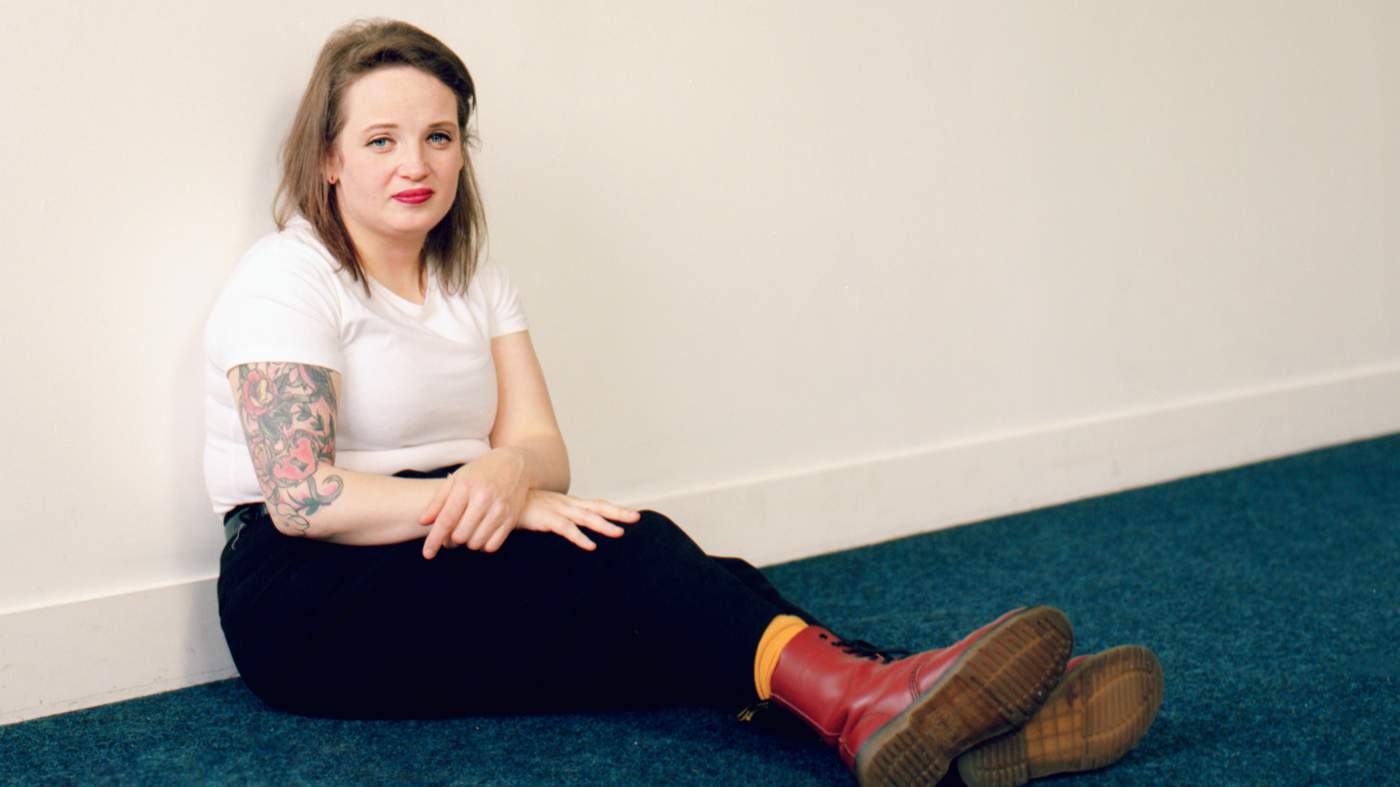For me to wear short sleeves was really difficult. Even in the summer, I would cover my arms. But I got to a point where I thought: ‘Why should I cover my arms?’ It doesn’t happen straight away, it takes time. As long as you’re investing time in putting yourself out there, wearing short sleeves, making yourself feel comfortable, it will happen eventually.
For young people, I want to show that it doesn’t matter what you look like. It’s good to be different. Embrace your differences.
The doctors say they’ve never seen anyone with a birthmark like this before.
It’s called angiokeratoma, and it’s got bigger as I’ve grown. The doctors want to stop it growing, but they say it’s like a tree - if they put a skin graft on, it will just grow through it.
Only one of my friends has ever seen it. I’ve never wanted to show them.
I’m better now than when I was in school, because I’m not put in situations that make me feel uncomfortable. When I was getting changed for PE, I would be so paranoid that people were watching me. I’d sit out because I’d be too afraid of them seeing my birthmark.
Learning to live with it is the hardest thing. I’m trying to manage it better, talking openly about it so my family understands. I’m becoming a lot more relaxed, but it’s the initial moment when people stare. That’s the worst bit. I’m so aware of it because it’s just so eye-catching. It can be bright red sometimes - it changes colour so much.
I’m undergoing treatment at the University Hospitals Birmingham to relieve the pain I'm in.
I went on a high dose of medication and it cleared my skin. The downside was the really bad side effects. I used to take the medication once a week, on a Friday, and was groggy the entire weekend. I just thought: ‘It’s just not worth it’. I thought there’s no point in having clear skin if it has an impact on everyone around me.
It has as much importance as I place on it, and it all comes down to me. Skin is skin - it’s just what we make of it.
Now I tend to manage it by managing my stress levels. I run a bath and put in Dead Sea and Epsom salts, and I soak and meditate. This is a huge part of feeling good enough to show my skin.
At first it was pretty embarrassing, I didn’t know how to respond.
I never used to have to talk to people I didn’t know in the street. Now that I do, it’s a nice way to break the ice. I’m changing. I see people differently.
I could shave my beard, but I don’t because I’m used to it. I have to keep it for the rest of my life - it’s part of me now.
I’ve always been pretty healthy. I never had spots - even during puberty. So this was quite a shock. It’s known as nodular prurigo, and came out of nowhere.There was an itchiness - really deep down under the skin.
It’s like there’s nothing there. But I itch and itch, and lumps appear. I don't know whether I caused them to appear by itching, or they are there, underneath and making me itch.
The medical line is that there is no cure for it.
There are things you can do to try to alleviate the scratching. I have acrylic nails - they're brilliant. I used to have bandages and special clothing. I even tried cling film.
I joked to the consultant that they should put my arms in plaster, and she actually offered to do that. It had got to that point. But I know I would find something to get down the plaster. When you have an itch, you have got to get to it.
This disease has ruined my life. I am currently signed off work - I just want to hide away. It’s changed me as a person - I've lost a lot of confidence.
The spots are sore and so ugly. That’s the main reason I’m getting a tattoo of roses on my body. To make me feel better. It won’t be on show for everyone else, it will just be for me really, to look at instead of the scars.
Apart from the time in detention before I was granted asylum, living in England is nice. The climate is adequate because my skin condition doesn't like sun exposure.
I’ve met people who appreciate me for my potential, rather than judging me by my skin colour.
I have attended some self-esteem workshops here, and now I feel happy about myself. I have made a friend who insisted that I should let my hair grow for the first time. Now I’m happy with my hair. I love myself, I think to be happy within yourself means you can share the love around.
Cushing’s disease has wrecked my body. I put on four stone in nine months, and that was with going to the gym six times a week and not eating much - no carbs. I went from a size 8 to a size 20. It’s something to do with the excess of [steroid hormone] cortisol from the tumour on my pituitary gland.
The stretch marks appeared when I started putting on weight.
My hair fell out and I gained weight in my face. The classic look of someone with Cushing's is a round face, skinny arms, skinny legs and a big stomach with stretch marks. They're very deep purple, because of the high cortisol levels. They're really angry and they change colour. Mine are still a little bit purple.
I’m petrified of being weighed, just in case.
I’m losing the weight, but the first sign of it going back on is stressful. I have to keep getting checked. They don’t know if [the disease] is going to wake up in six months’ time, three years’ time, never.
